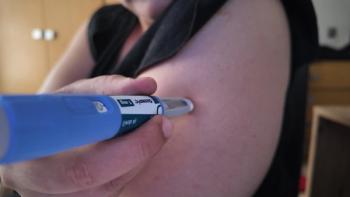
Chemotherapy Education Policy Fails to Increase Education and Decrease ‘Same Day Chemo’ Teaching
While staff at a NCCN-designated oncology center responded positively to a new Chemotherapy Education Policy, its implementation did not increase the quality of education or decrease the incidence of “same day chemo teaches,” according to data presented at the ONS Annual Congress.
Although nursing and pharmacy staff responded positively to a new Chemotherapy Education Policy mandating pre-treatment patient education and defining standards for the process, it failed to meet its goals of increasing the quality of that education and decreasing the instances of patients receiving education on the day of their first dose, according to a poster presentation at this year’s Oncology Nursing Society Annual Congress.
The researchers aimed to standardize and increase the quality of the pre-treatment chemotherapy education process and to decrease the amount of patients receiving “same day chemo teaches,” or learning about their treatment on the day of their first dose, to reduce patient anxiety and increase understanding.
“At our National Comprehensive Cancer Network (NCCN)-designated ambulatory oncology center, patients are educated about their treatment by both nurses and pharmacists,” said Martha Read, MSN, RN, OCN, of the Seattle Cancer Care Alliance, during the presentation. “There was a lack of consistency in the educational content covered, the materials that were given to the patient and when the education took place.”
To reach these goals, a chemotherapy education committee comprised of providers, pharmacists, nurses, supportive care and patient education services developed a policy to standardize the education process, with identified benchmarks. These changes defined standards for educational materials and acceptable online resources, educational content (common side effects, treatment schedule, supportive care, when to contact team), documentation and education scheduling of pre-treatment and a 3-day post-treatment follow up call from the clinic nurse.
After implementing the new education policy, the percentage of patients receiving chemotherapy education on the same day as their first day of treatment dropped from 33% to 28%. While the number went down, and nursing and pharmacy staff responded positively to the changes, Read explained, post-intervention, “same day chemo” teaches still happened between 41-48% of the time.
“Our next steps are to identify the barriers to providing pre-treatment chemotherapy education prior to the first day of treatment,” said Read. “And also, to provide additional education to reinforce the standards that were set in our policy.”
The researchers also plan to evaluate the implementation of the three-day follow up call obtaining patient feedback on the education experience.
Reference:
Read M. Improving Chemotherapy Patient Education through Standardization: Does a Policy Help? Presented at: Oncology Nursing Society 46th Annual Congress; April 20, 22, 27, and 29, 2021. ePoster 1536. https://ons.confex.com/ons/2021/cp/eposterview.cgi?eposterid=1536
Newsletter
Knowledge is power. Don’t miss the most recent breakthroughs in cancer care.


































